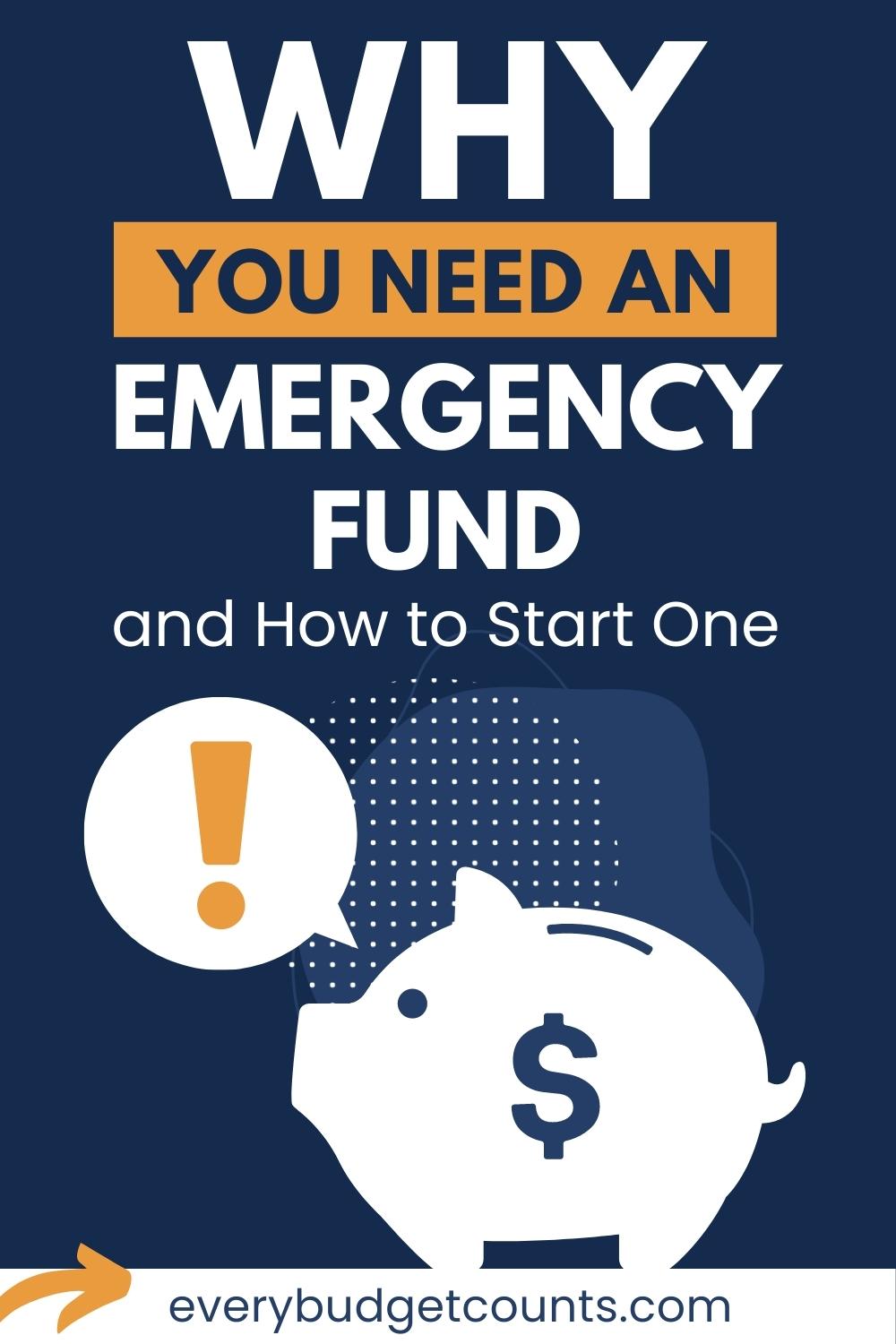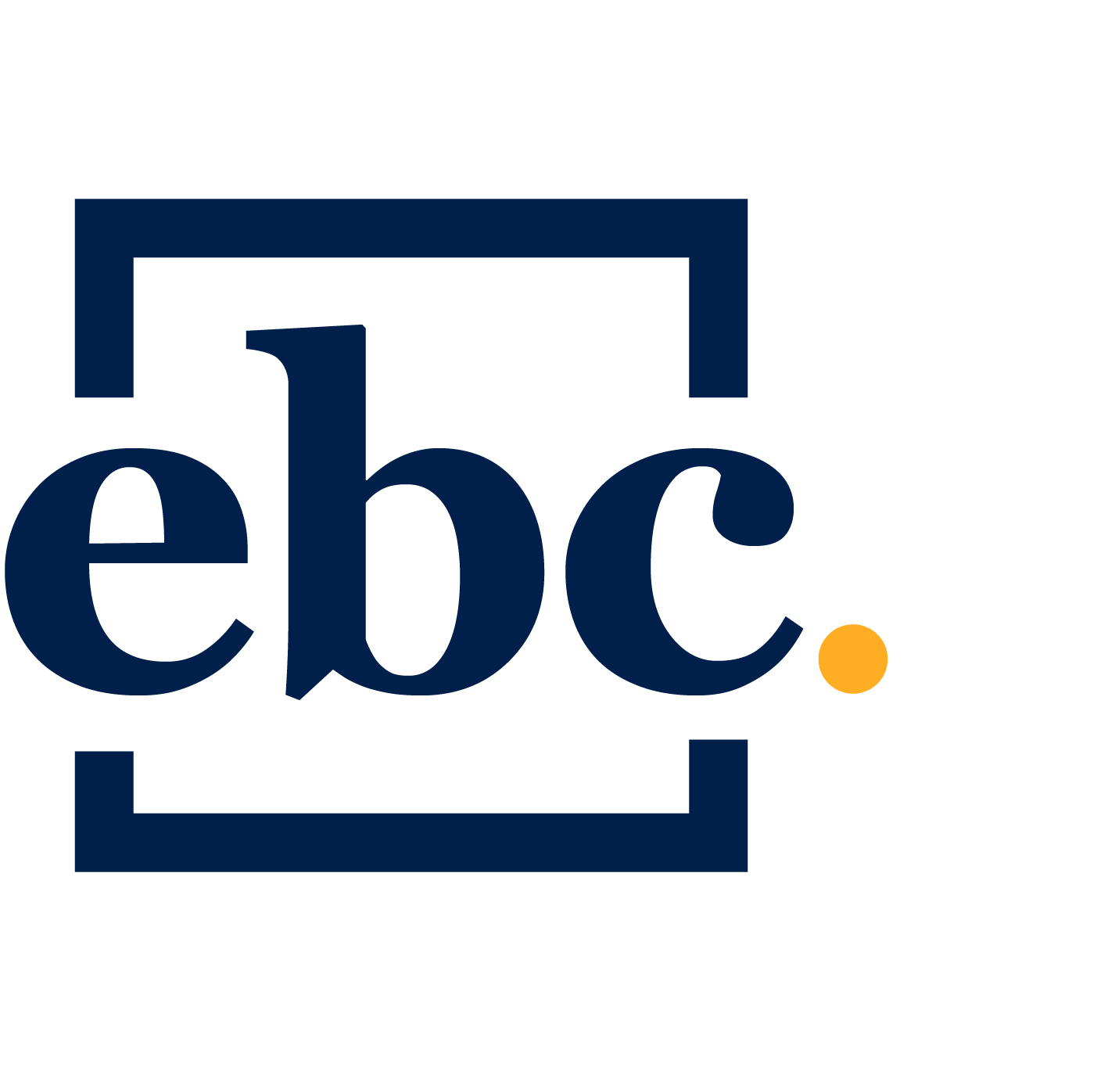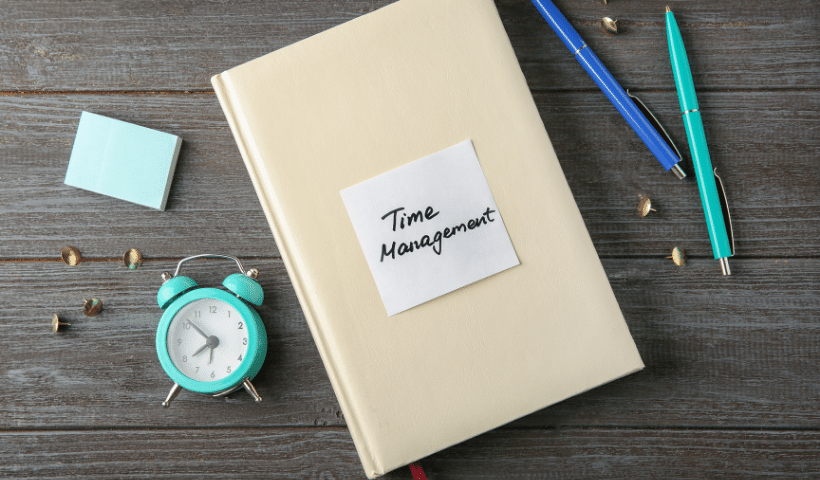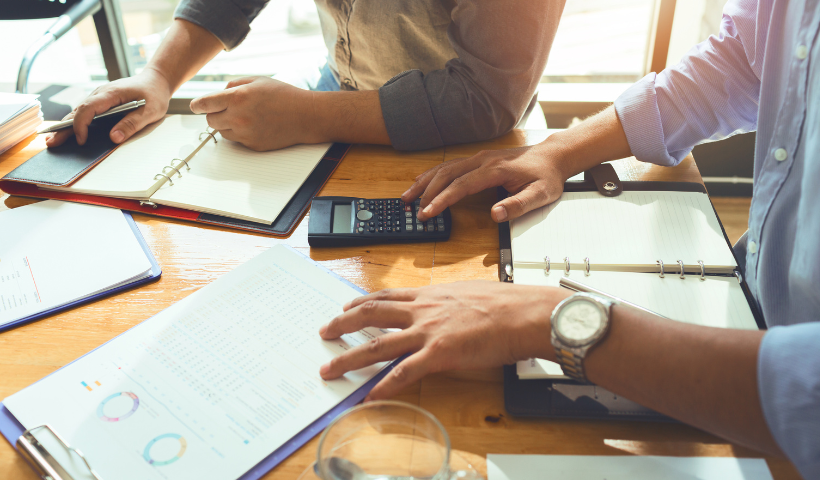How to Start an Emergency Fund and Why You Need One
Written By Jay

Learning how to start an emergency fund and creating one is crucial to keeping on top of your money. Think of an emergency fund as a guard that is protecting your savings and your investments. It is an important part of your financial wellbeing and, frankly, will give you some peace of mind.
There are a lot of situations that might necessitate an emergency fund, from an unexpected home repair, to paying for emergency room bills, or even becoming unemployed. Being adequately prepared for events like these can lessen the financial burden that often accompanies them.
How to Start an Emergency Fund: Table of Contents
What is an emergency fund?
An emergency fund is money that is set aside that you can use in, you guessed it, an emergency.
In my case, it always seems to be car related. Not too long ago my car shut down in the middle of the freeway. Thankfully I was able to pull over to the side of the road before I lost all of my momentum but the day ended with my car being towed to the nearest shop for some diagnostics and repairs. Needless to say, thank you emergency fund.
Because we had an emergency fund in place, we were able to handle the unexpected and relatively expensive repair bill. We didn’t have to dip into our actual savings or investments or use a credit card to get my car back on the road.
This is the beauty of an emergency fund. It’s there when you need it so that other less desirable methods of payment aren’t required.
Why is an emergency fund so important?
As simple as an emergency fund is, the reason it is so important to have one is because, whether we want it or not, life happens.
My car story is a perfect example, and one that I have in common with relatives, friends, and coworkers. This sort of thing is not uncommon at all and can very easily put you in debt if you aren’t prepared.
If you’ve been working hard to pay off your debt and build up your savings only to have an unexpected expense pop up and you don’t have an emergency fund, you will be faced with a frustrating setback. Sure, stuff like this is never fun anyway but having to pay with your credit card will make it that much worse.
What other things can happen?
Emergency funds are, by definition, meant for emergencies. Car trouble may be one of the more common incidents that would benefit from an emergency fund but what are some others?
- Unplanned home repairs
- Emergency room visits
- Deductibles for insurance claims
- Veterinary bills
- Rent and basic living expenses
- Emergency weekend getaway (just kidding!)
These are just a few of the more common examples but the point is made I think. There are a lot of life events that will show up when they are least expected and they have a nasty habit of occurring at the worst times.
Our best defense against them is to plan ahead and to be prepared.
How much money do you need in your emergency fund?
This is an excellent question. The answer is, “it depends.”
The most common suggestion is to have a $1,000 set aside as an emergency fund. This is a really good amount to strive for and, especially given the prices of everything, probably represents a minimum amount.
The question now is, “is more better?” The answer to this one is, “not necessarily.”
Having $25,000 in an emergency fund is a great accomplishment and probably looks really good on your bank statement but having that much cash just sitting in a bank account losing value is not the best idea.
Remember that we also want to be investing and paying off our debts. Most regular checking accounts will earn you basically nothing in interest, which over the years, means that your $25,000 is going to be worth less and less each year. We want our money to be growing, not shrinking.
I would advise performing a basic risk assessment of your life. Think about the most likely emergencies to take place and estimate how much these might cost. Do you drive an old car? Is it costly to repair? How high are your deductibles for your health insurance, your car insurance, etc.? How much does an emergency room visit cost you? What about if you need various imaging done while you are there?
Another important question to ask yourself is how long could you afford to live where you live comfortably with no income coming in? This means rent, food, utilities, etc. It’s a good idea to have a few months of living expenses available just in case. This is definitely more than the previously mentioned $1,000 but should be factored into any emergency fund calculations.
I understand that some of these are unpleasant to think about but covering your bases means that, should something happen, you will have one less thing to worry about. Let the answers to these questions guide you when deciding how much money you should set aside.
How should you save for an emergency fund?
Saving for an emergency fund is just like saving for anything else. The first thing you are going to want to do, if you haven’t already, is create a budget. This is going to show you how much you can afford to save each month and areas where you can work to become more efficient with money management.
The next step is to set up a plan. The best way to do this is to come up with your goal amount and track your progress toward your goal.
I recommend using our free printable to help keep you on track. It can be downloaded for free here.
Once you have your goal and you’re tracking your progress, there are tons of fun ways to challenge yourself to save more. Take a look at our list of 12 money saving challenges for some fun and creative ways to save.
Where should you put your emergency fund?
The thing to remember with an emergency fund is that it needs to be highly liquid. You should be able to access your emergency fund, well, in an emergency. This rules out investment accounts, gold bars, and yes, even cash.
I know, cash is as liquid as it gets. However, should you find yourself in need of your emergency funds away from home, how likely is it that you are carrying around $1,000+ on your person? If the answer is pretty likely, I recommend you stop doing that. We want our money to be secure, as well.
Recommendations for high yield savings accounts and money market accounts make good sense. These allow for relatively easy access to your money and earn at least some interest. You won’t be keeping up with inflation with these accounts by any means but something is better than nothing.
When looking at accounts for your savings fund, make sure to consider minimum balances, maximum transfers and withdrawals, etc. You want to make sure you won’t get charged any fees and will have access to your money when you need it.
Having an emergency fund is an important piece of the puzzle
Successfully managing your money is an ongoing process with a lot of different pieces that work together to create your financial success. An emergency fund is just one piece of that puzzle.
It is all too easy to adopt a wait and see attitude with money. A lot of times it feels like it is impossible to have any control over what happens with our money but taking a hands off approach only guarantees that we have no control.
Taking an active role in our financial lives gives us control over our goals and our choices and puts us in the best position to have a say in what the outcomes are. We want to give ourselves the best chance of success and that means taking ownership and having a plan.
Thankfully, it’s as easy as starting a budget and making small changes toward accomplishing our goals. The difficult part is sticking with it, but believe me, it is always worth it! There are so many tools out there to help you succeed and get you where you want to go.
DISCLOSURE: THIS POST MAY CONTAIN AFFILIATE LINKS AND/OR PAYED PLACEMENT. PLEASE READ MY DISCLOSURE FOR MORE INFO.
Recent Posts
How to Start an Emergency Fund: Table of Contents






0 Comments